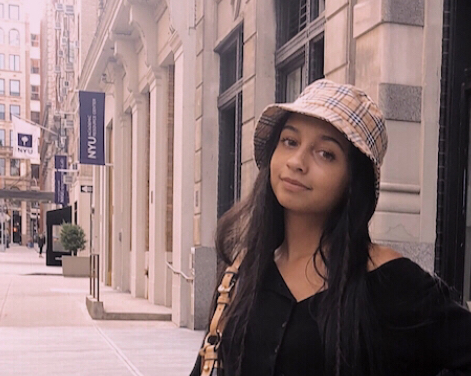The Rise of Generation Z
December 3, 2020
Generation Z, consisting of ages eight to 23 years, is one of the most unique generations in that it accumulates a younger cohort who gets to be part of and experience monumental moments. This is a generation belonging to young adults with elevated levels of education, social awareness, digital nativism, and an inclination to be more expressive.
To stem from the beginning, Gen Z is the first generation to be born into a world of advancing technology and social media, which affects how expressive they are. Since then, they have experienced in a decade what most generations experience in a lifetime. Including national issues like the 9/11 terrorist attack, an impending World War 3, mass school shootings, a worldwide pandemic, and a civil rights movement with the Black Lives Matter protests.
Gen Z is more likely than older generations to take a stand against social injustices and unfair predicaments. While many people part of older generations, especially Baby Boomers, may stereotype Gen Z as “uneducated children,” they are just as mature, if not more, than Millennials and just as opinionated as Boomers.
Intel from the Morning Consult, a technology company specialized in gathering global data, reveals that 81% of generation Z respondents claim that the United States is on the wrong track, and a vast majority believe their generation has the power to shape things in the right direction. This company provides a multitude of other percentages, displaying mind-altering worldwide effects on Gen Z, through conducting their own studies.
When looking at the two most prominent events taking place in 2020 alone, “75 percent of Gen Z respondents say the coronavirus outbreak has had a major impact on their worldview, and 68 percent say the same about the Black Lives Matter movement” (Laughlin).
Gen Z’s trust for major institutions has dropped ten percent, including declines with the police, the government, the criminal justice system, and even the media. Subsequently, this lack of trust serves as the main contributor to Gen Z’s decreasing optimism for the future. However, they aren’t afraid to take the necessary measures to change it.
Numerous young activists have been taking a stand for social justice and equality all over the world. Zee Thomas, a 15-year-old girl, organized a protest in Nashville, where over 10,000 people joined her. With the help of five other teenagers- Nya Collins, Jade Fuller, Kennedy Green, Emma Smith, and Mikayla Smith- she was able to organize one of the largest protests against white supremacy in Nashville history. Zee’s powerful message to the crowd included, “As teens, we feel like we cannot make a difference in the world, but we must.”
Seventeen-year-old Tiana Day worked with nineteen-year-old Mimi Zoila, after consulting with one another on Instagram to organize a Black Lives Matter protest across the Golden State Bridge. Thousands of people stretched for miles marched with them.
Eighteen-year-old Shayla Turner, from Chicago, spent her high school graduation week campaigning to remove police from inside Chicago’s public schools. Nineteen-year-old Brianna Chandler worked from her bedroom to organize an educational opportunity on social media for students to inform themselves about racial justice.
A high majority of protesters accompanying these young activists are in their teens and twenties, which goes to show the power generation Z can hold when united.
Along with advocating for social justice, adolescents have also been raising awareness about the climate and our planet’s environment. The well known seventeen-year-old Greta Thunberg instigated an international movement to fight climate change and has become a leading inspiration for millions. Greta has addressed the UK Parliament, the U.S. Congress, and even the United Nations to demand that they start enacting real change for the sake of the earth.
Similar to what Thunberg stands for, eighteen-year-old Xiye Bastida is a climate justice activist and leading organizer of the Fridays for Future organization. Based in New York City, Bastida’s predominant goal is to overcome the climate crisis and create a society that can live in harmony with the environment.
Additionally, a group of teenagers- Jamie Margolin, Nadia Nazar, Madelaine Tew, and Zanagee Artis- orchestrated an organization known as Zero Hour, as a way to give the youth a voice about climate change. Currently, these young activists are working to propose a new Green New Deal in Congress to create communal equity and a renewable economy.
Other young adults who are working to make a difference include Malala Yousafzai and Emma González. The notable Malala survived being shot in the head after standing up for women’s educational rights. There is even a book about her life story called I am Malala, which covers her story and what she went through, as a teenager, to stand up for what she believes. Moreover, Emma became an advocate for gun control after surviving the school shooting in Parkland, Florida. In order to advocate for stricter regulations to prevent gun violence, Emma founded a group known as Never Again MSD.
These are just a fraction of the number of people from Gen Z who have been proactive in architecting a better world, and this number has been increasing by the day, especially during current times.
Even in the Quakertown community, the student body has stepped up countless times and displayed leadership. Keishla Rodriguez, a senior at Quakertown High, recognized, “this is the type of generation who is too afraid to order for themselves in a restaurant or raise their hand in class, but won’t hesitate to stand up face to face against authorities for what they believe is right.” Keishla is a proud and active member of the Gen Z community, as she is someone who uses her social media platform to spread awareness of the injustices in the world.
It is remarkable, really, the power we hold as the future of this world. And when we are united as one, we are unstoppable.




